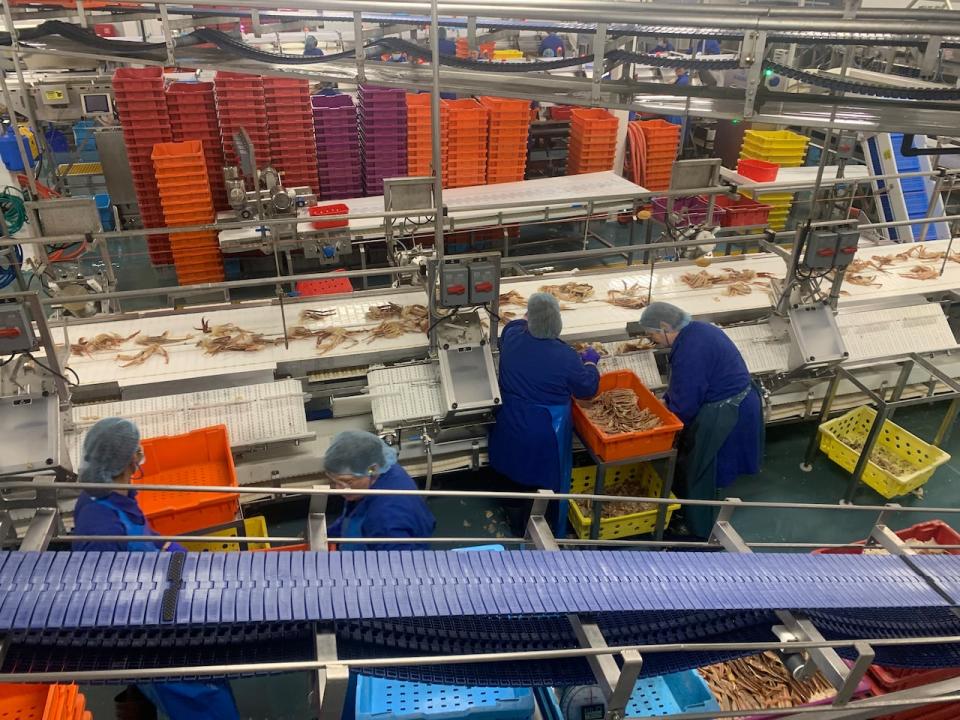FFAW-Unifor president says federal government's EI extension falls short


FFAW-Unifor president Greg Pretty says the current employment insurance system is too rigid and needs to be changed. (Patrick Butler/Radio-Canada)
After days of working through the federal government announcement it would add four additional weeks of EI regular benefits, FFAW-Unifor president Greg Pretty said he's figured out what it means for members — and isn't happy.
Last week's federal fall fiscal update noted regional unemployment rates were down, resulting in reduced EI benefits for some. The federal government is adding four additional weeks of regular benefits in certain economic zones, including Newfoundland and Labrador.
"The four-week extension is important. It will cover that gap created by the increase in employment in Newfoundland," Pretty told CBC News. But fish harvesters aren't eligible to apply for the extension, and neither is anyone who applied for EI benefits before the cutoff date of Sept. 10 — such as an fish plant worker whose seasonal work wraps up earlier in the summer.
But the drop in unemployment also caused an increase in the EI divisor, which determines the weekly benefit, earlier this year, from 14 to 16. The divisor is the number of weeks used to calculate a worker's weekly benefit, which is 55 per cent of the average of their top earning weeks. A divisor of 14 means the benefit is calculated using the average of their 14 best earning weeks, while a divisor of 16 means it's the average of their 16 best earning weeks.
Seasonal workers may have earned much less in those next two weeks — or nothing at all — which lowers the average amount and in turn the weekly benefit.
"We appreciate and workers appreciate the extension of four weeks, but it's really not enough to fix the problem that the EI system created by changing the rules when in fact all of the crab had been packed and shipped out," he said.
"And that's the hurt on seasonal workers, because once the seasonal work is over, there's very little can be done then to change those numbers, particularly in rural Newfoundland."
He called the move to extend EI by four weeks the "bare minimum," particularly at a time when the cost of living is rising and it costs more for people to buy groceries, gas up their vehicles and heat their homes.
"And now the EI program — the antiquated, antediluvian EI program — is also picking their pockets," said Pretty.
Problem solving
Pretty is calling for a reformed EI program, arguing that the current system doesn't account for technology and product failures or pandemics.
"In our particular example, this year we had a market crash, which that program completely ignored," he said.
"Now both employers and workers are paying into this, and it should be responsive enough to look after people who are in severe jeopardy because of one of these issues."

Pretty says plant workers are out hundreds of dollars a month due to the new EI divisor. (Todd O'Brien/CBC)
CBC News asked federal Labour Minister Seamus O'Regan for an interview but was told he wasn't available.
In a statement, O'Regan's press secretary, Harley Witten will assist an additional 6,000 people until the next season starts.
"We will continue to support workers in the seasonal industries that are integral to our province's economy," said the statement.
Pretty said he'll be asking to discuss short-term and long-term solutions with O'Regan to alleviate pressure on seasonal workers. Still, he remains worried about the immediate future for seasonal workers as the weather turns colder.
"Unless they change that divisor, then I'm, you know, sad to say that a lot of people will be suffering in this province, economically, this winter."
Download our free CBC News app to sign up for push alerts for CBC Newfoundland and Labrador. Click here to visit our landing page.


